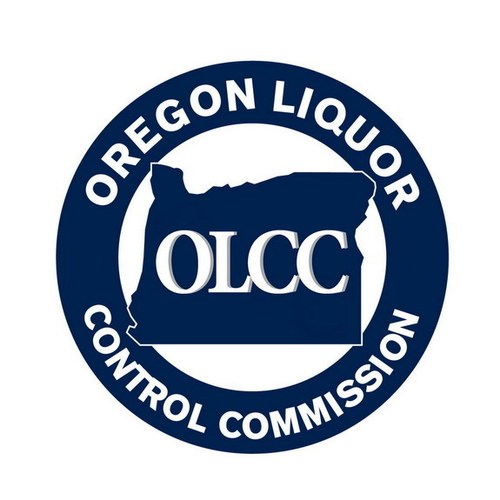In a move that seems to shed more doubt than certainty on domestic cannabis cultivation and the date that it will start auf Deutschland, the Higher Regional Court (or OLG) in Dusseldorf formally stopped the pending bid procedure for the first crop on March 28th. BfArM, the federal agency in charge of regulating all narcotic drugs, initiated that procurement bid. The tender bid was launched after the German Parliament and federal legislators changed the law last year to mandate that cannabis be available via prescription, and further that public health insurers were required to cover it.
That bid announcement was supposed to come as early as last September. Criticisms about the process and requirements began immediately thereafter. For starters, the bid’s requirements excluded all German-only respondents to the bid and left both Canadian and Israeli firms in the front positions to obtain these valuable licenses. However, there were other gripes, including the fact that the amount of cannabis requested (about 6.6 tonnes) was far too low to even begin to meet real demand. Namely, there are easily 1 million German patients who could qualify for the drug.
In the space of the last year, in fact, the number of “official” German cannabinoid patients has shot up from 1,000 to about 15,000. That said, the top three covering insurers also report a mere 64% approval rate. This means that there are more doctors writing prescriptions than insurers are covering.
That, at least for patients and their advocates is a bit of good news despite the blow that any delay in domestic production has created. Doctor resistance to prescribing cannabinoids even when there are no other alternatives has been used as an excuse in many media reports for the speed of market development. That clearly is not true. The attitude on the ground in Deutschland is rapidly changing.
That bid announcement was supposed to come as early as last September. At that point, however,the agency was then forced to extend the response date, which it did, but apparently not for long enough.
Throughout the fall, it was impossible to understand, from any direction, what was going on. Four lawsuits against the bid were launched around September, each with differing complaints that ranged from criticizing the agency for the lack of extension and response time to monopolistic business practices.
The OLG dismissed all but the criticism about the extension.what this decision has done most clearly is slowed down the production of domestically grown medical cannabinoids
The one clear thing to come out of Düsseldorf? BfArM has been banned from awarding its contract to anyone to produce medical cannabis in Germany starting in 2019. The first letters to bid finalists announcing the bid had been canceledbegan arriving the day after the court’s decision.
Reading Between the Lines
There have been rumors since last fall that the bid would end up in such waters. However,all the major producers widely suspected to have applied for the bid also began announcing themselves as finalists in press releases. For this reason, the official line from everyone that the bid was still, in fact, on track.
Nobody could understand why anyone would want or even be able to halt the production of direly needed, locally sourced, high-gradecannabis. That includes BfArM, which made an impassioned response, via their attorney to the OLG in Dusseldorf. Attorney Heike Dahs warned the court that any interruption of the bid was “very bad for the care of patients.” He was similarly pessimistic about the ability to begin production domestically by the previously set 2019 deadline.
In fact, what this decision has done most clearly is slowed down the production of domestically grown medical cannabinoids (although potentially not by much) while giving officials at BfArM a rather nasty black eye that might yet lead to further legal action.
It also means that there will be another bid process. In the meantime, the ex-im market is, if anything, taking off.
This is a Shock And Opportunity – but not a Surprise
No matter the opinionated emails and IM’ing going on in several languages all over the world right now about the implications legally in the future, the major producers are all taking this in stride. And appear to be well positioned to respond.
According to Dr. Pierre Debs, the managing director of Spektrum Cannabis (the global medical brand of Canopy and based just south of Frankfurt), who responded to CannabisIndustryJournal a day after the court decision, the company is not affected by this development. “Spektrum has a steady and constant supply and we do not anticipate any problems supplying patients through their pharmacies,” he says. Debs received the first German medical import license to bring Canadian cannabis into the country a mere two years ago and has continued to carve a leading path in the discussion across Europe. “In addition to our supply from Canopy Growth Corp, our partnership supply agreement with Alcaliber in Spain will see Spektrum importing sun-grown medical cannabis products starting towards the end of the summer,” says Debs.

Photo: ICBC, Berlin
But it is not just the big guys in the mix anymore. And there are many who see opportunityto a situation, which is frustrating.“As the second-largest country by population in Europe and a leader within the EU, the German market represents a new frontier for the cannabis industry in general in the region,” says Zlatko Keskovski, chief executive officer of NYSK Holdings, a Macedonian firm now in its second harvest of GMP-certified cannabis and holding EU export rights.
For such firms, even though NYSK is a surprise entrant to the conversation this year and outside the EU, the current situation represents an unbelievable chance to enter a market literally starving for qualifiedproduct. The firm is currently looking for German distributors who cannot access medical grade cannabinoids via other routes including attending the ICBC in Berlin in April. “This year’s ICBC looks to be a seminal moment for NYSK,” says Keskovski. “We have taken the appropriate steps to ensure our high-quality standards have led to products that our customers, and eventually patients, can rely on. We look forward to the chance to showcase our achievements that we’ve worked so hard for. The ICBC will also present us with the opportunity to meet with potential distributors and future partners.”
German Patients are Going to be on the Front Lines of This Discussion
The difficulties that German patients have already faced in obtaining a drug that is now legal in their own country for medical use (and even for recreational purposes across an open border in Holland) are legion. While to a certain extent, German patients are in the same boat as patients elsewhere and their problems, in fact, there are still huge access issues that remain. For starters, the drug is much more expensive here, so those without health insurance approval face bills of about $3,000 per month. Why the eye-watering price? All medical grade cannabis is still imported, although increasingly this is now just via other EU countries, not just from Canada.
“One of the reasons we organized the national German Patient Roundtable is to give patients a voice in all of this supply and demand discussion and to help BfArM and others formulate workable solutions for all,” responded Philip Cenedella IV when reached for a response by CIJ. Cenedella, an American expat and the organizer of the Roundtable, a nationally focussed, umbrella group that is kicking off its campaign this year, spoke for many who are far from court and boardrooms where the decisions are being made.

Photo: @MedPayRx, Instagram
“While there are very talented firms who will now take up this discussion with the government and reissue a response for the tender, what we continue to see on the ground is that patients simply do not have the access granted them in the law which was passed over a year ago,” Cenedella says, with more than a note of frustration. “We again are calling on all government officials, industry executives and patient advocates to band together to immediately establish workable protocols that directly help the patients.”
Indeed, despite the frustration and delay, if not new costs and opportunities that this decision creates, one thing is very clear on the ground here. The current status quo is unacceptable. That alone should also put pressure on the powers that be to remedy the situation as quickly as possible. And via several routes, including widening import quotas or even issuing new licenses as a new solution to domestic cultivation is implemented.
“Patients are not being served and do not have access to a medicine that has been proven to improve lives,” says Cenedella. “Our simple request is for BfArM to finally invite patients into their discussions, to work with patients to formulate workable cultivation and distribution solutions, and we humbly request that this happen now before they go down another dead-end road, ending in another court defeat, and resulting in even more delays to the patients that are still lacking the care afforded them by the German Federal Court’s decision of 2017.”







































